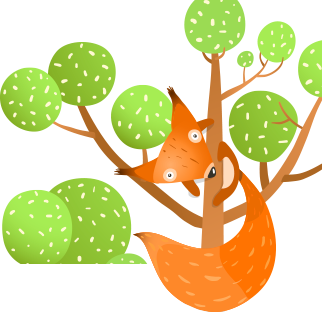The old TV game show “Match Game” illustrated how important one word can be to a joke. Gene Rayburn hosted the program, in which contestants filled in a blank in a sentence and hoped their answer matched those of the celebrity guests.
For example, “Brenda said to her son, `It’s not true that I wanted a daughter instead of you. Now shut up and put on your ______.’ “
Actor Gary Burghoff’s answer: “training bra.” Much funnier than if he had answered “earrings” or “perfume,” right?
Many of the same humor rules that apply to jokes also apply to the choice of individual words. Individual words can show exaggeration, or provide a surprise or double entendre—all of which are solid techniques to make people laugh.
But often writers spend more time on the order and structure of sentences than the individual words within sentences. When you’re writing a humor piece, don’t settle for an overall funny concept. By going back through the piece with a fine-tooth comb, and using these six tips to find the funniest words, you can turn a funny piece into a hilarious one.
LISTEN TO HOW WORDS SOUND
When a person reads, he hears the words in his mind. Words that sound funny when spoken also sound funny when read silently. In Neil Simon’s play The Sunshine Boys,
one character says this about comedy: “Fifty-seven years in this business, you
learn a few things. You know what words are funny and which words are not funny.
Alka Seltzer is funny. You say `Alka Seltzer,’ you get a laugh…Words with the
`k’ sound in them are funny. Casey Stengel, that’s a funny name. Robert Taylor
is not funny. Cupcake is funny. Tomato is not funny. Cookie is funny. Cucumber
is funny. Car keys. Cleveland…Cleveland is funny. Maryland is not funny. Then, there’s chicken. Chicken is funny. Pickle is funny.”
Read your writing aloud and listen to the sound of the words, as well as their meaning. Try substituting one word for another and listen to see if it makes a difference.
PICK A WORD THAT BREAKS A PATTERN
Mixing the length of sentences adds variety to a piece. Mixing the length and pattern of the word you use can do the same thing—and add humor. For example, “Bill’s favorite foods were beef tenderloin with béarnaise sauce, coconut creole bread pudding and Twinkies.” The word “Twinkies” breaks the pattern of the more sophisticated foods—and also includes the magic “k” sound. Big Idea Productions created an animated TV program called “3-2-1 Penguins!” The program is about four penguins named Zidgel, Midgel, Fidgel and Kevin. Notice how “Kevin” breaks the rhyming pattern of the first three names and offers a surprise. It would have been even funnier if a single syllable name had been used to break the two-syllable name pattern. For example, Zidgel, Midgel, Fidgel and Bob.
BE SPECIFIC
Generic words (e.g., automobile) aren’t as funny as specific words (e.g., Ford F150 pickup truck). Specific words add a level of detail that draws a reader into a story and makes it more believable and personal. I once wrote, “Kids are like martinis—the more you have, the looser you feel.” Using a specific drink (e.g., martini) is much
funnier than using a generic term (“I’ve often said that kids are like alcohol—the more you have, the looser you feel”).
The same is true for expressing quantity. “Forty-three” is funnier than “a lot.”
PUT THE FUNNIEST WORD AT THE END
Humor writers always put the punchline at the end of the joke. A corollary to that rule is to put the funniest word at the end of the punchline sentence. (Thanks to Keith Woods, dean of faculty at the Poynter Institute, for this great tip.) For example, compare these two sentences:
Kids are like martinis—you shouldn’t drive under the influence of either.
You shouldn’t drive under the influence of kids or martinis.
By putting the word “either” at the end of the sentence, the punchline comes as a surprise. Placing the word “martinis” at the end of the sentence telegraphs the punchline and diminishes the humor.
When revising a humor piece, reread each sentence with an eye for the funniest word. Then rewrite sentences using the same words in a different order to see which has the most impact.
FIND WORDS WITH MULTIPLE MEANINGS
The double entendre is a comedy staple, one that’s all about word choice. Country music song titles often use this device. Consider the songs “If I Said You Had a Beautiful Body, Would You Hold It Against Me?” and “Crystal, I Can See Through
You.”In the first example, “hold it against me” can refer to either “beautiful body” or the statement “you have a beautiful body.” The second example is more of a pun, in which “Crystal” can either be a woman’s name or something made of glass.
Choosing words with multiple meanings can be very pun-ny. (Sorry.)
USE A THESAURUS
For most writing, I don’t recommend using a thesaurus. Writers often end up adding uncommon or sophisticated words that result in a clunky writing style. But for humor writing, a thesaurus is an indispensable tool. There’s no quicker way to find potential funny words when you have a concept in mind but can’t come up with just what you’re looking for.
Say you’re writing a humorous piece about how your car always breaks down. Looking up “car” in a thesaurus will jumpstart your brainstorming and provide you with words that you probably wouldn’t have thought about, or at least not as quickly—and you can drive that clunker (or bucket, heap, junker) to the bank of funny writing.




